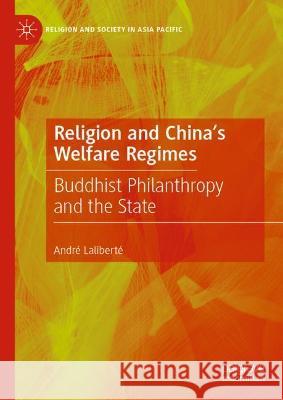Religion and China's Welfare Regimes: Buddhist Philanthropy and the State » książka
topmenu
Religion and China's Welfare Regimes: Buddhist Philanthropy and the State
ISBN-13: 9789811672699 / Angielski / Twarda / 2022 / 210 str.
Religion and China's Welfare Regimes: Buddhist Philanthropy and the State
ISBN-13: 9789811672699 / Angielski / Twarda / 2022 / 210 str.
cena 481,91
(netto: 458,96 VAT: 5%)
Najniższa cena z 30 dni: 462,63
(netto: 458,96 VAT: 5%)
Najniższa cena z 30 dni: 462,63
Termin realizacji zamówienia:
ok. 22 dni roboczych
Dostawa w 2026 r.
ok. 22 dni roboczych
Dostawa w 2026 r.
Darmowa dostawa!
Kategorie:
Kategorie BISAC:
Wydawca:
Springer Verlag, Singapore
Seria wydawnicza:
Język:
Angielski
ISBN-13:
9789811672699
Rok wydania:
2022
Ilość stron:
210
Wymiary:
21.0 x 14.8
Oprawa:
Twarda
Dodatkowe informacje:
Wydanie ilustrowane











